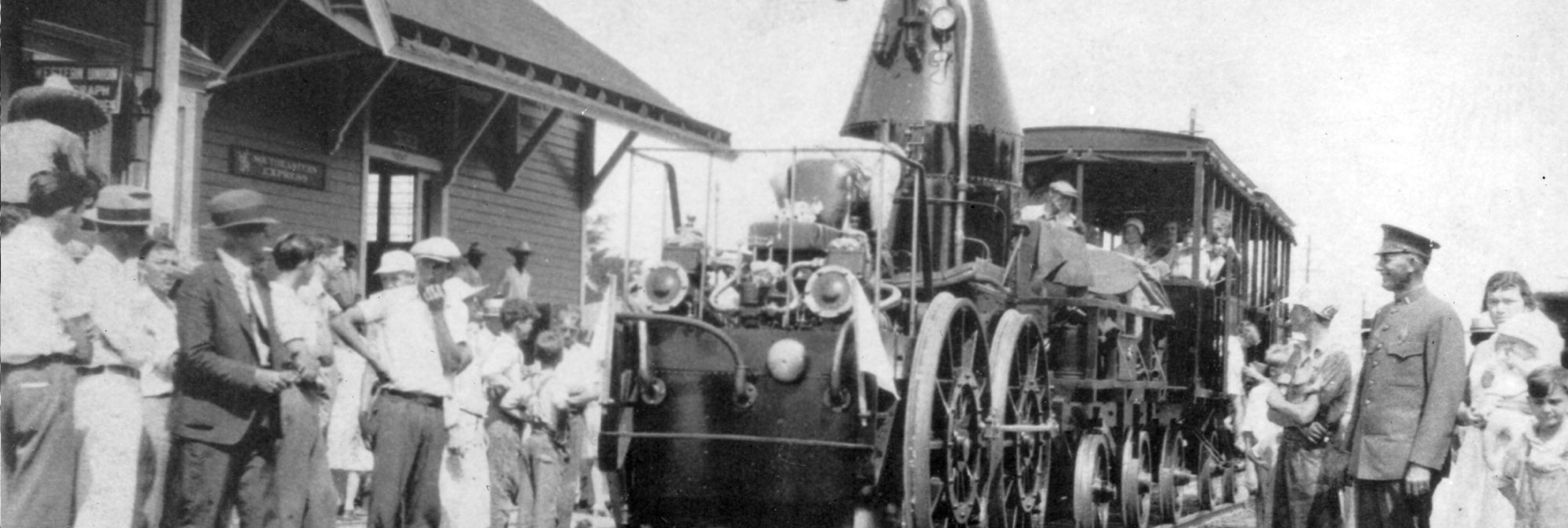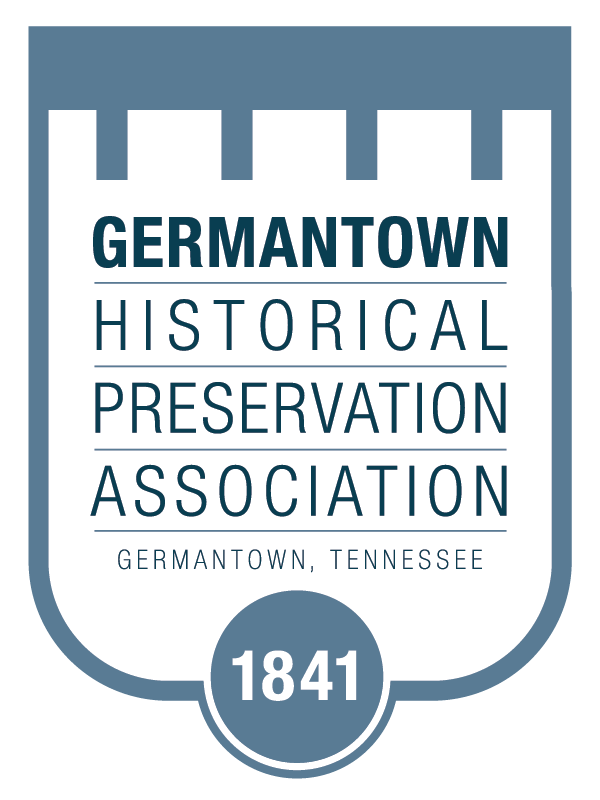
Railroad
Bringing the first railroad to Germantown in 1852 magnified the town’s prosperity. In the early 1800s, railroad fever spread across the United States. This phenomenon came to the Memphis area in 1831 when the first railroad company in Tennessee was proposed. The Memphis Railroad Company was chartered by the state and was one of several attempts to build a viable railroad in the Mid-South.
The Memphis Railroad Company and the LaGrange and Memphis Railroad, and as many as eight other railroad companies chartered in Tennessee in the 1830s all fell prey to disease, economic bad times, and politics. The California Gold Rush in 1848 brought increased interest in building rails. On September 12, 1849, the Memphis and Charleston Railroad started selling subscriptions. Though there were many setbacks, the Memphis and Charleston laid the first tracks by June of 1852. By August 15, 1852, the line reached Germantown and was open for business, although a regular schedule was not begun for a month.
The railroad had a tremendous effect on the growth of Germantown. Economic and social life revolved around the railroad depot from the 1850s to the 1930s when automobiles gained prominence. The railroad was Germantown’s main form of transportation and was the major artery by which goods and supplies were shipped and received. Cotton, lumber, and farm products were shipped to Memphis and taken by riverboats to be shipped to mills in the north. Mail was also an important item shipped by the Memphis and Charleston Railroad.
Passenger service ran hourly from Memphis to Germantown for fifty cents; children under twelve paid half-price. Germantown residents gathered at the depot, the center of the community. There were thirty-three stops between Memphis and Germantown.
This connection with Memphis and other strategic cities, via the rail system, led the destruction of the Civil War to the doorstep of the citizens of Germantown. After the war, the rails resumed their role as the leading economic and social influence for the city. Today, many Germantown citizens who complain about having to wait for the trains in their cars do not realize how important these tracks were for the history and development of the Germantown area.
